Annual hurricanes not only disrupt businesses but can result in thousands, if not millions, of dollars in lost revenue due to power failures. Without a reliable backup power system, critical operations grind to a halt, impacting supply chains, security systems, and data integrity.
Power Backup Planning for Hurricanes
Each year, hurricanes bring widespread power outages, causing significant disruptions for businesses. Without a reliable backup power strategy, operations can come to a halt, leading to financial losses and safety risks. Creating a hurricane contingency plan before a storm strikes ensures that businesses have the necessary infrastructure in place to withstand extended outages and maintain critical functions.
From selecting the right generator to ensuring proper fuel storage, every aspect of hurricane power preparedness must be addressed well before storm season begins. A comprehensive power backup plan includes evaluating energy needs, securing reliable generator solutions, and implementing safety protocols to minimize risks
Properly preparing your generator can make all the difference when facing a hurricane. For more insights on how industrial emergency generators aid disaster recovery, explore our guide on ensuring hurricane preparedness and resilience.
Hurricane Generator Tips for Optimal Performance
Generators play a critical role in maintaining business continuity during hurricanes, but their effectiveness depends on proper preparation, fuel management, and safe operation. Without routine inspections and strategic fuel planning, generators may fail when they are needed most. Businesses must take proactive steps to ensure their backup power systems perform reliably before, during, and after a storm.
Pre-Season Inspection and Maintenance
Routine maintenance is the foundation of generator reliability. A well-maintained unit is less likely to experience mechanical failures, ensuring power is available when hurricanes disrupt the grid. Businesses should schedule thorough inspections before hurricane season begins to identify and resolve potential issues. Preventive maintenance helps extend generator lifespan and enhances performance under extreme conditions.
Even with the best planning, generators can fail if they aren’t maintained correctly. To avoid disruptions, businesses should:
- Test generators under full load at least once a month to confirm they can handle real-world power demands.
- Inspect air filters, spark plugs, and belts regularly and replace them before they wear out.
- Keep extra fuses, oil filters, and coolant in stock to prevent downtime in case of unexpected failures.
- Refill fuel tanks as needed and avoid letting levels drop too low before a storm.
- Check oil and coolant levels frequently to prevent overheating and engine damage.
- Ensure battery connections are secure and that the battery is holding a proper charge.
- Simulate a power outage to verify that the generator starts automatically and operates correctly.
Fuel Management Strategies
Fuel shortages are a common challenge during hurricanes, often caused by supply chain disruptions, increased demand, and power outages affecting gas stations. In some cases, local governments, like in Florida after Hurricane Milton, have stepped in to provide emergency fuel depots to help residents. However, businesses cannot rely on government resources and must have a proactive fuel management plan to ensure uninterrupted operations.
To maintain an adequate fuel reserve, businesses should:
- Store enough fuel in approved containers to keep operations running in case of supply disruptions.
- Rotate stored fuel periodically to prevent degradation and ensure it remains usable.
- Follow local regulations for fuel storage to avoid safety hazards and compliance issues.
- Work with fuel suppliers in advance to secure priority deliveries when shortages occur.
As seen after Hurricane Milton, power outages can disrupt gas station operations, delaying fuel deliveries and creating long lines. Businesses that plan ahead with proper fuel storage and supplier agreements are less vulnerable to post-storm shortages.
Safe Operation During a Storm
Operating a generator improperly during a hurricane can lead to equipment damage, fire hazards, or even life-threatening situations. Carbon monoxide poisoning, electrical overload, and flooding are among the most common risks. Businesses must follow strict safety protocols to protect employees and ensure uninterrupted power supply. These protocols include:
- Positioning generators in open areas to allow for proper ventilation and reduce the risk of carbon monoxide buildup.
- Keeping units elevated and away from flood-prone locations to prevent water damage.
- Using only heavy-duty extension cords that match the generator’s power output to avoid overheating and fire hazards.
- Distributing power loads evenly and never exceeding the generator’s capacity to prevent system failures.
Power Backup Strategies for Long-Term Outages
Some hurricanes result in extended power disruptions lasting days or even weeks. Businesses must be prepared for long-term outages by implementing strategies that ensure a steady power supply beyond the initial storm impact.
The aftermath of Hurricane Beryl in Texas serves as a reminder of how prolonged outages can cripple operations. More than 2.6 million customers lost power, and utility provider CenterPoint Energy faced heavy criticism for slow restoration efforts. The storm caused over a billion dollars in infrastructure damage, leaving many businesses without electricity for an extended period. When utilities struggle to recover, businesses must have independent power solutions in place.
To maintain operations during prolonged power failures, businesses should:
- Use multiple generators if possible to provide backup in case one fails during an extended outage.
- Have an agreement with a fuel supplier to guarantee access to diesel or gasoline when demand is high.
- Reduce unnecessary power consumption by prioritizing essential equipment and limiting non-critical loads.
As seen after Hurricane Beryl, relying on utility providers alone is not always a viable option. Businesses that take proactive steps to secure backup power can minimize downtime and financial losses during prolonged outages.
Choosing the Right Generator for Hurricane Preparedness
Selecting an appropriate generator depends on power requirements, fuel availability, and operational duration. Businesses should assess energy consumption needs and choose a generator that can handle peak demand.
Generators come in various sizes and capabilities, each suited for different operational needs. Understanding the differences helps businesses determine the most effective backup power solution:
| Type | Description | Ideal Use |
| Portable Generators | Small, mobile units with limited power output | Short-term power for small offices or remote sites |
| Standby Generators | Permanently installed units that activate automatically | Long-term backup for large facilities |
| Industrial Generators | High-capacity units designed for continuous power | Essential for hospitals, data centers, and manufacturing |
Generator Rental Considerations for Businesses
For businesses that require temporary power solutions, generator rentals provide a practical alternative to purchasing. Whether for hurricane preparedness, emergency response, or seasonal demands, renting ensures flexibility without the long-term commitment of ownership. However, deciding between renting and purchasing a generator requires careful consideration of operational needs, costs, and maintenance responsibilities.
Renting vs. Buying: Weighing Cost and Risk
Many businesses hesitate between renting and purchasing a generator. While owning a generator may seem like a long-term investment, it also comes with ongoing maintenance, fuel storage, and upgrade costs. Renting, on the other hand, offers businesses access to high-capacity industrial generators without the financial burden of ownership.
Key factors to consider when deciding between renting and buying:
| Factor | Buying a Generator | Renting a Generator |
| Upfront Cost | Requires a large capital investment | Lower initial cost, with flexible payment options |
| Maintenance Responsibility | Owner must handle all servicing and repairs | Maintenance is often included in rental agreements |
| Fuel Storage & Compliance | Requires proper fuel storage facilities and compliance with regulations | Rental providers often supply fuel management services |
| Scalability | Fixed capacity, may not meet changing power demands | Flexible generator sizes to match seasonal or project-based needs |
| Depreciation & Upgrades | Equipment loses value over time; upgrading requires reinvestment | Always access the latest generator models without replacement costs |
Key Benefits of Generator Rentals
Beyond cost savings, generator rentals provide businesses with additional advantages that enhance reliability and operational efficiency. Renting from a trusted provider ensures:
- Quick deployment during emergencies, minimizing downtime.
- Access to well-maintained, high-performance generators.
- On-site support and technical expertise.
- No long-term storage or servicing responsibilities.
For businesses that experience unpredictable power needs or operate in hurricane-prone regions, renting a generator is often the most cost-effective and hassle-free solution.
Reliable Generator Rentals for Hurricane Preparedness
Hurricanes bring unpredictable challenges, and securing a dependable power backup plan is critical for business continuity. Managing power infrastructure alone can be costly and complex, requiring ongoing maintenance, fuel logistics, and equipment servicing. Stag Power Rentals eliminates the guesswork by providing expert recommendations, on-site support, and generators tested under extreme conditions.
We offer a range of services to ensure businesses stay powered during and after a hurricane:
- Industrial Generator Rentals: Scalable power solutions for businesses of all sizes.
- Rapid Deployment: Fast delivery and setup to minimize downtime.
- 24/7 Support: Technical assistance that is available whenever it’s needed.
- Fuel Management: Optional services to maintain a steady power supply.
- On-Site Maintenance: Regular servicing and inspections to ensure peak performance.
For companies in hurricane-prone regions, waiting until the last minute to secure a backup generator can lead to delays and supply shortages. Stag Power Rentals provides flexible rental options, proactive maintenance, and expert support to keep your business powered through even the most severe storms.
Contact us today to secure a reliable power solution before the next storm hits.



